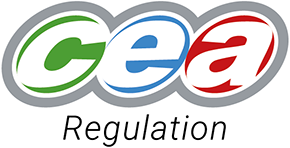Qualifications Frameworks
The England/Northern Ireland qualifications framework - The Regulated Qualifications Framework (RQF) was launched by Ofqual, (the Regulatory Body for England for all qualifications outside the Higher Education Qualifications Framework) on 1st Oct 2015.
The Regulated Qualifications Framework (RQF)
The England/Northern Ireland qualifications framework - The Regulated Qualifications Framework (RQF) was launched by Ofqual, (the Regulatory Body for England for all qualifications outside the Higher Education Qualifications Framework) on 1st Oct 2015. The RQF replaced the Qualifications and Credit Framework (QCF) for Vocational Qualifications and the National Qualifications Framework (NQF) for general/school qualifications. Ofqual launched a publication describing the new RQF. This publication can be accessed below:
The RQF is for all qualifications (General and Vocational) regulated by Ofqual and CCEA Regulation. It does not include the Higher Education qualifications. These are included in the Framework for Higher Education Qualifications (FHEQ). The RQF has nine levels which include Entry Levels 1-3 and Levels 1 to 8. Levels 4-8 of the RQF are comparable to Levels 4 - 8 of the FHEQ.
One of the major objectives for implementing the RQF was to introduce a single, simple, descriptive framework, to help people understand better how qualifications relate to each other, by setting consistent measures of size (how long, typically, a qualification takes to study and be assessed for) and level of difficulty.
The transition to the RQF did not include any significant changes to the structure of the framework. The number of levels remained the same – Entry 1−3 and Levels 1−8. Previously in the QCF, the size of the qualification was expressed in Notional Learning Time (NLT) with Guided Learning Hours (GLH) as part of this. With the introduction of the RQF the NLT was replaced with the term Total Qualification Time (TQT) with GLH forming part of TQT. However this was not a major issue for AOs as the definition of TQT was similar to Notional Learning Time. In 2015, Ofqual published documents setting out requirements and guidance which awarding organisations must apply when describing the size and assigning levels to regulated qualifications. These documents support the General Conditions of Recognition and can be accessed below:
The Register of Regulated Qualifications
Awarding Organisations (AOs) who want to offer regulated qualifications in England/Northern Ireland must be recognised by the Qualifications Regulators in England and Northern Ireland, (Ofqual and CCEA Regulation respectively) and meet the Regulators General Conditions of Recognition. Once recognised, AOs can submit qualifications (which must comply with General Conditions of Recognition) to The Register of Regulated Qualifications. All qualifications which are entered into The Register of Regulated Qualifications are regulated qualifications and become part of the RQF.
General Conditions of Recognition
The General Conditions of Recognition were revised to take account of decisions on Conditions and Guidance for the RQF and came into force from Oct 2015. The most recent CCEA Regulation version (2019) can be accessed here:
Qualifications Can Cross Boundaries
This resource can be referenced to compare qualification levels across the UK and Ireland. The succinct leaflet shows how qualifications are organised and how their level of challenge compares.
Qualifications can cross boundaries is the outcome of collaboration between education regulators, funders and quality assurance agencies in all UK jurisdictions and in Ireland. It offers an at-a-glance look at different qualifications’ frameworks, helping learners, educators, employers and governments understand how qualifications across national boundaries compare to each other.
It also offers a comparison with European higher education frameworks, helping graduates with UK or Irish qualifications understand how their awards compare internationally.
First published in 2010, this short guide is regularly updated with input from partner bodies including: QAA, the Scottish Credit and Qualifications Framework (SCQF) Partnership, Council for the Curriculum, Examinations and Assessment Regulation (Northern Ireland), Ofqual (England), the Credit and Qualifications Framework for Wales (Welsh Government), and Quality and Qualifications Ireland.
